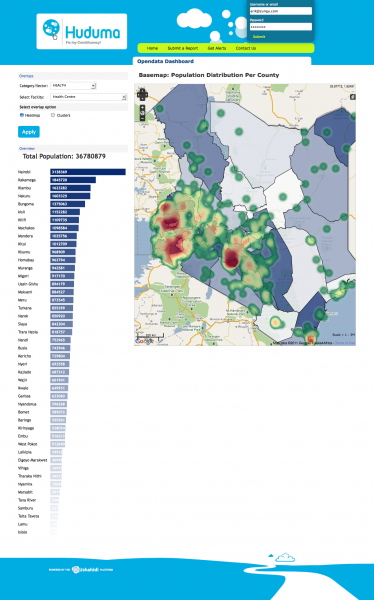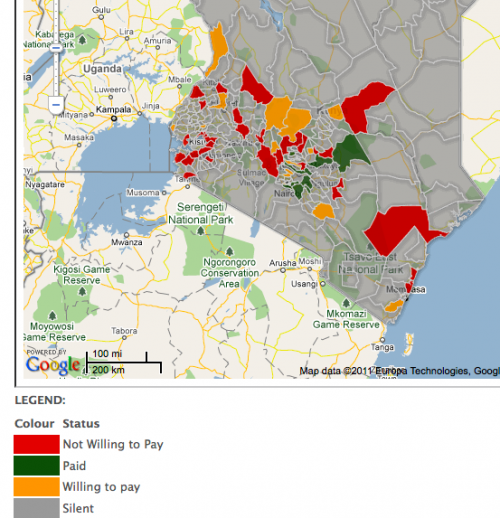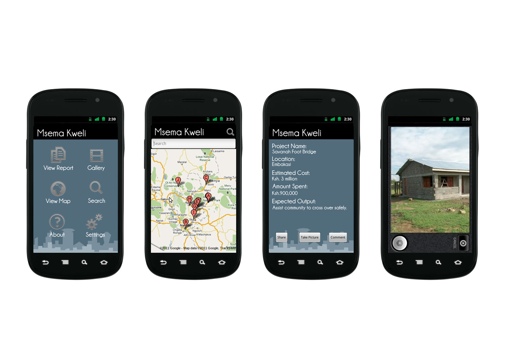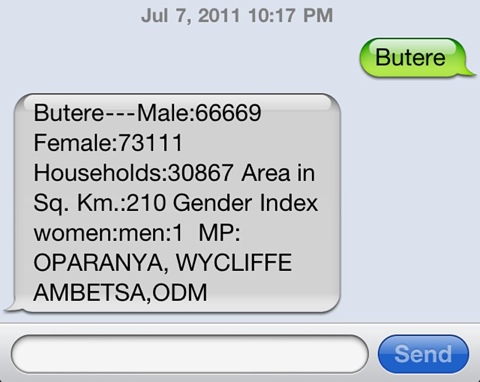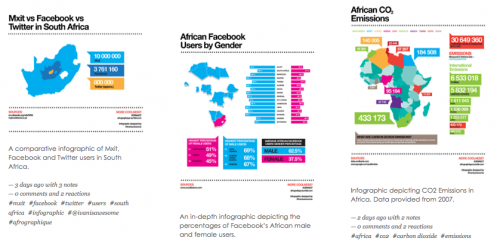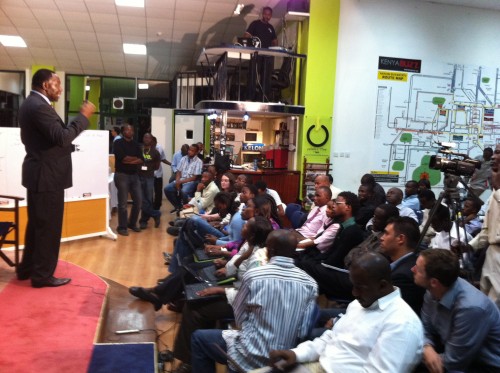 Today Kenya becomes the first country in Africa to launch a national open data initiative. There have been many people pushing for this, over many months, and it’s been an exciting process to watch unfold. Foremost amongst the drivers on this has been Dr. Bitange Ndemo, the Permanent Secretary of Information and Communications. This is indeed a very proud moment for Kenya, and a leading position to take on the continent.
Today Kenya becomes the first country in Africa to launch a national open data initiative. There have been many people pushing for this, over many months, and it’s been an exciting process to watch unfold. Foremost amongst the drivers on this has been Dr. Bitange Ndemo, the Permanent Secretary of Information and Communications. This is indeed a very proud moment for Kenya, and a leading position to take on the continent.
The Kenya Open Data Initiative (KODI) goes live this morning in a big event that includes President Kibaki, as well as many politicians, government officials and local technologists. The World Bank, who has been instrumental in organizing and helping publish the data is here as well, along with Google, Ushahidi, the iHub community and a large selection of youth.
Data Sets
The data is available online through the Socrata platform, which allows users to view different data at national, county and constituency levels. They can compare different data sets, create maps and other visualizations.
Data sets are categorized into 6 main categories: Education, Energy, Health, Population, Poverty and Water & Sanitation. It includes data from the national census, the ministry of education, ministry of health, CDF projects and many more.
Here’s an example of that data, “county expenditures by administration”:
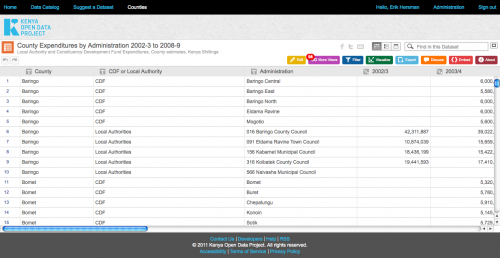
Mashing up the Data
This all came together rather quickly, starting about 3 weeks ago. The tech community was immediately reached out to, and as the data sets have come online over the last week, we’ve had access to them early in order to show what can be done. Here’s a few samples of that.
The Ushahidi team is taking the census data and overlaying healthcare institution data on top of it into our Huduma site. It’s still very beta, but it shows what can be done in just a few days.
We’ve also built a simple SMS query tool. If you’re in Kenya, send an SMS to 3018 with the name of your county or constituency and you’ll get back an SMS with the demographics and MP of that location.
The Virtual Kenya team has built an app that shows which MPs refuse to pay taxes.
The iHub community has done some things around tracking CDF fund usage in the constituencies. There’s a mobile app called “Msema Kweli” that allows you to find CDF projects near you, and for you to add pictures of them.
